Family Doctors
“We seamlessly process objects, words, shapes, colors, movement and faces simultaneously within milliseconds with the mechanism rarely, if at all, flickering into our consciousness. Perhaps because of the apparent ease with which we are able to see, we live with the illusion that seeing is easy.”
Cooper, S. A. (2012). Higher visual function: hats, wives and disconnections. Practical neurology, 12(6), 349-357.
What they’re saying
Enhancing Patient Care Through Vision: Beyond 20/20
Welcome, Family Doctors!
Are you ready to elevate the level of care you provide to your patients? You’re invited to explore the often-underestimated dimension of healthcare – vision.
Beyond 20/20 eyesight lies a world of crucial insights that can significantly impact the well-being of your patients. Increasing your understanding regarding the central role of vision will enable you to help your patients in ways that you have not considered till now.
Seeing is something we do!
You’ve certainly heard the term “20/20 vision” countless times, but what does it truly mean? While it indicates an individual’s ability to see small details from a distance, it is just one piece of the vision puzzle.
Vision encompasses more than just clarity; it encompasses eye movements, visual processing, and the intricate functions of the visual system, which are vital for everyday tasks such as reading, writing, and even understanding patient symptoms.

Why Vision Matters in Your Practice
Consider this: a patient walks into your clinic with complaints of unexplained discomfort, fatigue, or difficulty concentrating. Such symptoms might seem unrelated to vision, but they could be more interconnected than you think. Visual issues can contribute to numerous health concerns, including attention problems, learning difficulties, and even headaches.
Exploring the patient’s visual well-being could open up new avenues for diagnosis and treatment. In some cases, undiagnosed vision problems may be at the root of persistent health issues, yet they often go unnoticed. By considering vision as a vital component of health, Family Doctors can unlock a broader perspective on patient care.
Discover New Horizons with Vision Insights
You may wonder how understanding vision beyond 20/20 can be practically integrated into your practice. The answer lies in seeking a deeper understanding of the relationship between visual health and overall well-being.
By including vision assessments in your routine examinations and asking patients about their visual experiences, you can identify issues that may have been previously overlooked.
Vision and ADHD
A 2016 study published Optometry and Vision Science (1) found that children with vision problems are 200% more likely to be diagnosed with ADHD.
Researchers looked at 75,000 students and found that 15.6% of those with vision problems had also been diagnosed with ADHD. In contrast, only 8.3% of students without vision problems had been diagnosed with ADHD.
The symptom profile of ADHD and some problems of visual efficiency, principally convergence insufficiency, are almost identical. Here’s a list of signs and symptoms for someone who is struggling visually.
Dr. Richard Saul, pediatric neurologist and author of the provocatively titled book “ADHD does not exist”, finds that undiagnosed visual issues are the #1 cause for misdiagnosis of ADHD.
Dr Saul begins each chapter with a boxed Big Point, and for the Big Point about vision problems he writes:
“Problems related to vision are among the most overlooked explanations for attention-deficit/hyperactivity symptoms. Children (and adults) who struggle to see normally are likely to demonstrate short attention span and distractibility that may be mistaken as symptoms of ADHD. Steps taken to address the vision problem should resolve the attention/hyperactivity symptoms.”
Addressing vision issues at their core can be life changing. Listen to Eitan describe the changes he experienced from optometric vision therapy.
Strabismus and Mental Illness
A paper published in Pediatrics (2) looking at how an unstable visual environment might lead to the development of mental illness concluded that “children diagnosed as having strabismus in this population, especially those with exotropia, were at increased risk for developing mental illness by early adulthood.
Patients with intermittent exotropia seemed to be particularly prone to developing significant psychiatric diseases by the third decade of life.”
Commonly Undiagnosed Vision Problems
Following are vision problems that a struggling student with 20/20 eyesight, might experience every time they read and not know that it is unusual. These vision problems are common too in patients following m-TBI.
Eye focusing – Blurred vision or ability to shift focus between objects between near and far distances may be compromised.

Eye teaming - Your eyes may not work together properly as a team even to the point of experiencing double vision.

Eye movements – You may have trouble with eye movements when reading or trying to follow a moving object (like a ball being thrown). Losing your place while reading is a common complaint.

Motion sensitivity – The integration between the vision and balance system can be disrupted, making it difficult to process motion properly. Symptoms can include discomfort and even dizziness when scrolling on a computer screen or phone, or when in busy environments such as grocery stores, social settings, or sporting events.
Animated images courtesy of Nielsen Vision Development Center (Selma, TX)
Vision and TBI
MDs often overlook visual issues during the initial stages of treating a brain injury, and sometimes, symptoms may not manifest until after some time post-injury. Neglecting visual system disorders can result in severe consequences that affect the ability for your patients to manage simple tasks. They may feel that “something is wrong” with their vision despite having been told that all is well by ophthalmologists and neurologists.
If your patients describe any alterations in their vision subsequent to a concussion or other head trauma, it’s crucial not to dismiss them even if they have been seen by ophthalmologists.: Promptly refer them to their nearest developmental optometrist. Not every optometrist specializes in developmental optometry, so we’ve made it convenient for you to locate the nearest one here.
Listen to Anna as she describes how vision therapy helped her recovery following a whiplash injury.
This gentleman suffered a stroke and was referred for optometric vision therapy. The therapy improved his tracking skills.
Vision and Stroke
Approximately two-thirds of stroke survivors experience visual impairment, often linked to reduced central or peripheral vision, abnormalities in eye movement, or deficits in visual perception. Post-stroke, individuals may encounter a variety of visual disorders that manifest as blurred or distorted vision, double vision, loss of visual field, reading difficulties, heightened sensitivity to light, and challenges recognizing familiar objects or people.
The impact of visual impairment extends to everyday activities such as driving, performing daily tasks, and engaging socially. Given the prevalence of visual symptoms and their significant impact, it is advisable for all stroke survivors to undergo thorough screening for visual disorders immediately after a stroke. This screening may lead to a referral for specialized assessment and tailored treatments for specific visual impairments.
Similar to Traumatic Brain Injury (TBI) cases, stroke survivors often require a multi-disciplinary approach to rehabilitation. Effective rehabilitation following a stroke frequently involves comprehensive visual neurorehabilitation therapy in conjunction with physical and occupational therapies. Early intervention by a Neuro-Optometric Rehabilitation Optometrist is vital to address an individual’s visual rehabilitation needs, working collaboratively with other rehabilitation professionals to assist the stroke survivor in adopting new techniques or compensatory strategies to manage any residual disabilities.
What can you do to help?
So, what can you do to help your patients address their visual issues? If you suspect that your client is grappling with visual challenges, recommend a visit to a board-certified neuro-developmental optometrist. For a list of signs and symptoms, refer to our Vision Therapy Page. Not every optometrist specializes in neuro-developmental optometry, so we’ve made it convenient for you to locate the nearest one here. A neuro-developmental optometrist will evaluate how well a person manages to meet the visual demands of all the aspects of their life. They may prescribe glasses specifically for reading, work or even for improving stability when walking. They may also recommend optometric vision therapy. Optometric vision therapy is a supervised program to enhance vision skills, including eye teaming, eye tracking, and eye focusing, while improving visual processing. To understand more about how optometric vision therapy can improve the life of your patients visit this page.
Want to learn more from an expert?
Book Robert Lederman for your next meeting, whether it’s live, hybrid, or online. Learn from one of the best in the field about vision beyond 20:20 eyesight. Gain a deeper understanding of its critical and pervasive role in human function and how this knowledge can empower you to better serve your patients.
Transform your next event with a captivating lecture from Robert Lederman
Contact us at the office today and find out more about his live presentations and webinars on the critical role of vision in our lives
I am not just an optometrist; I am a passionate advocate, educator, and speaker with a track record of over 400 presentations. I am on a mission to contribute towards awakening the world to the critical role that vision plays in determining our performance in various areas of life.
Through engaging live speaking events, I have had the privilege of sharing my expertise with professionals across diverse fields, including remedial teachers, neurologists, educational psychologists, occupational and physical therapists, family doctors, ophthalmologists, music teachers and more.
Together, we explore the profound impact that vision has on their work, uncovering new possibilities and strategies for enhancing patient outcomes. With a personalized and interactive approach, I create memorable experiences that empower and inspire. Let’s connect at your next conference, event or webinar where I can bring my wealth of experience and insights to ignite a collective understanding of the extraordinary power of vision in transforming lives.
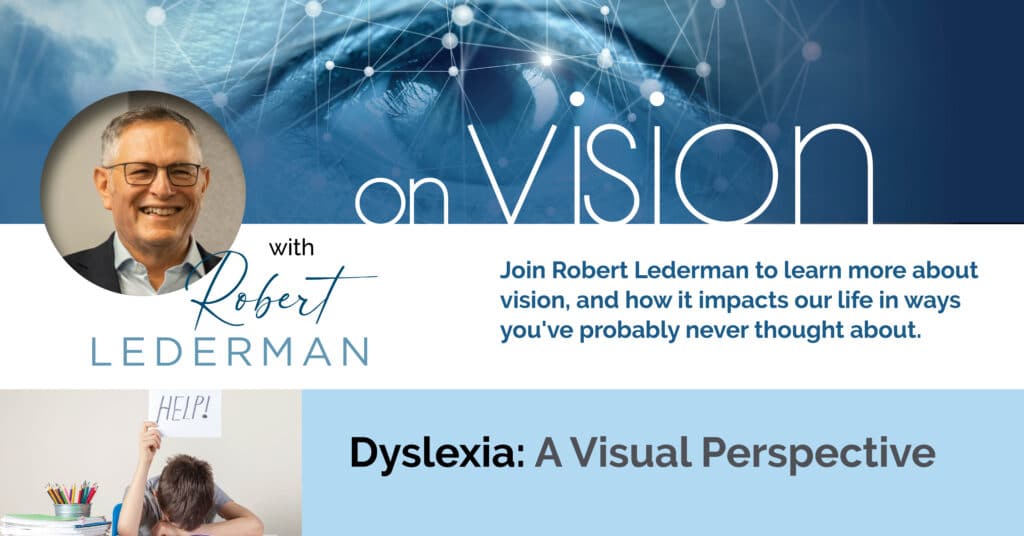
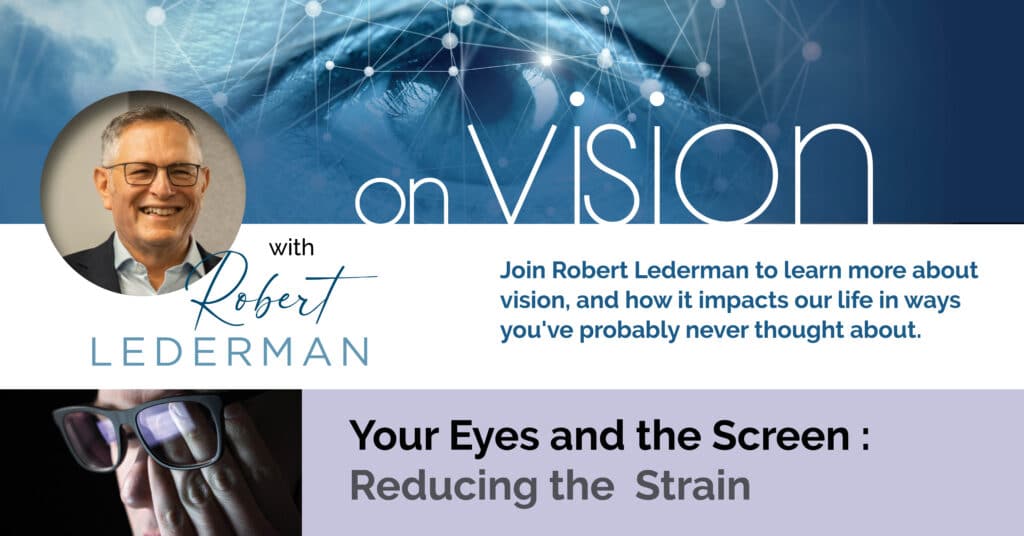
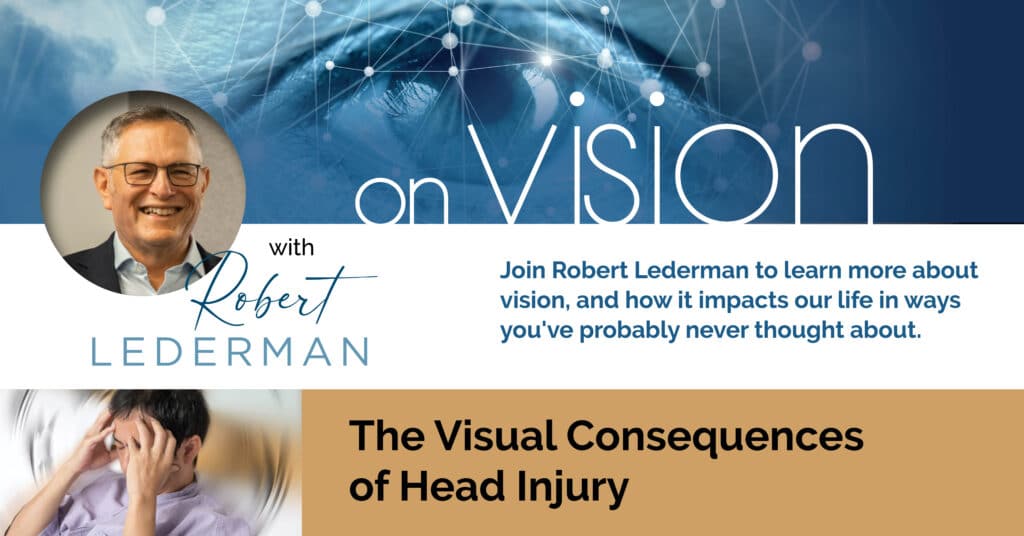
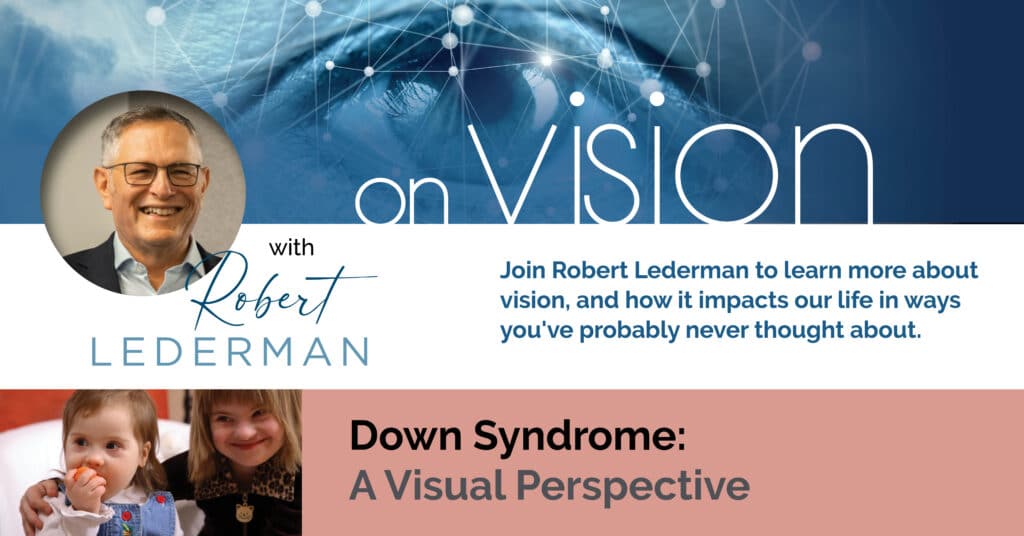
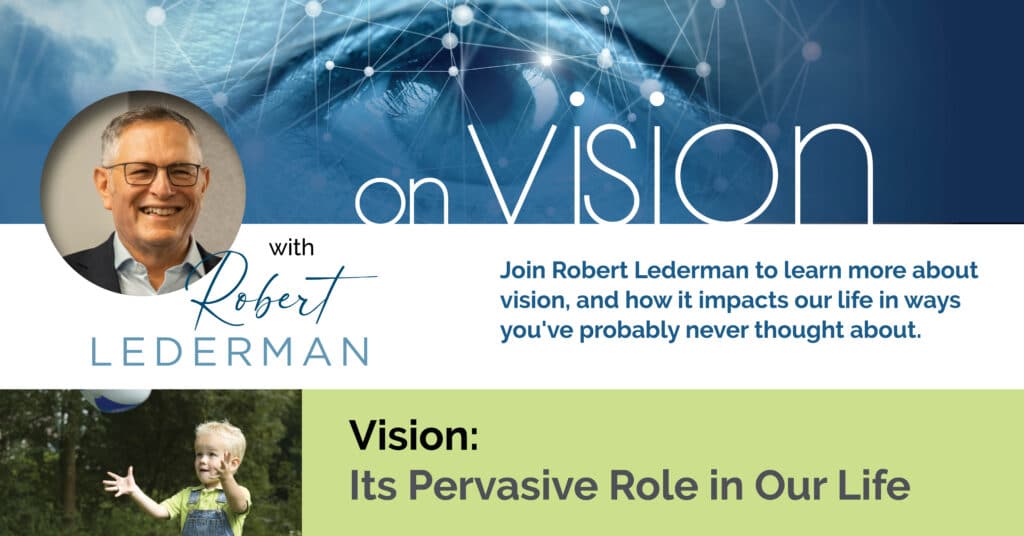
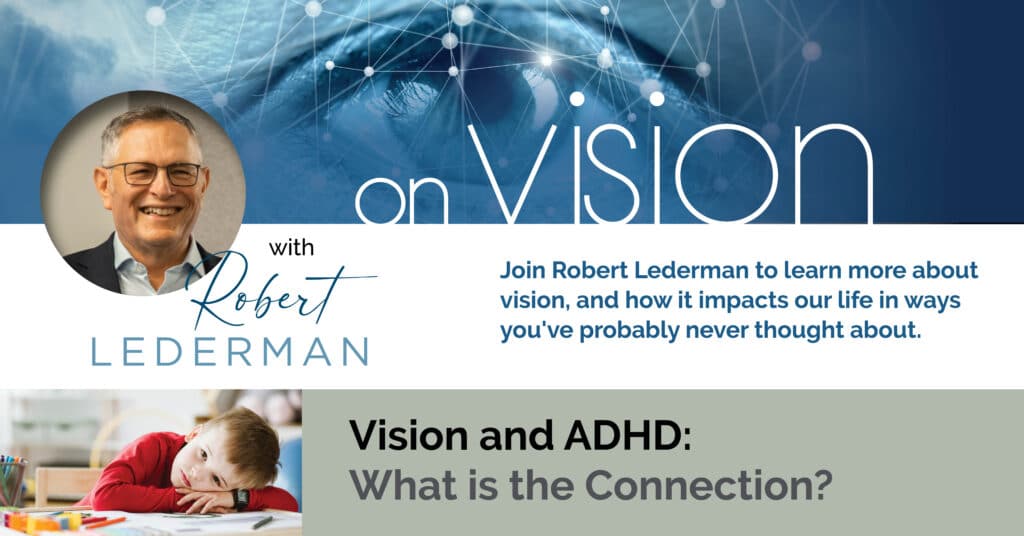
Learn From a Vision Expert
Invite Robert Lederman to Speak
Explore the critical role of vision in patient care with Robert Lederman. Gain insights into vision beyond 20/20, recognizing and addressing undiagnosed visual issues. With 35+ years of clinical experience, Robert enriches medical teams by deepening their understanding of vision, enhancing diagnostic accuracy and patient management.
Improve your ability to help your patients.
To gain essential knowledge about vision and its intersection with patient health, consider booking Robert Lederman for conferences, webinars, or other professional events. With his insightful presentations, Robert can help your medical team unlock new perspectives on patient care. By understanding the visual dimension, you can enhance diagnostic accuracy and patient management, leading to improved outcomes for those you serve.
Don’t miss this opportunity to delve into the world of vision beyond 20/20 and enrich your practice. Your patients deserve the highest level of care, and vision could be the missing link to their well-being. Reach out to Robert Lederman and start your journey toward enhanced patient care today.
Book Robert Lederman for your next meeting, whether it’s live, hybrid, or online. Learn from one of the best in the field about vision beyond 20:20 eyesight. Gain a deeper understanding of its critical role in human functioning and how this knowledge can empower you to better serve your clients.

References
1.DeCarlo DK, Swanson M, McGwin G, Visscher K, Owsley C. ADHD and vision problems in the national survey of children's health. Optometry and vision science: official publication of the American Academy of Optometry. 2016 May;93(5):459.
2. Mohney BG, McKenzie JA, Capo JA, Nusz KJ, Mrazek D, Diehl NN. Mental illness in young adults who had strabismus as children. Pediatrics. 2008 Nov;122(5):1033-8.


